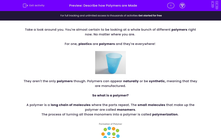Take a look around you. You're almost certain to be looking at a whole bunch of different polymers right now. No matter where you are.
For one, plastics are polymers and they're everywhere!
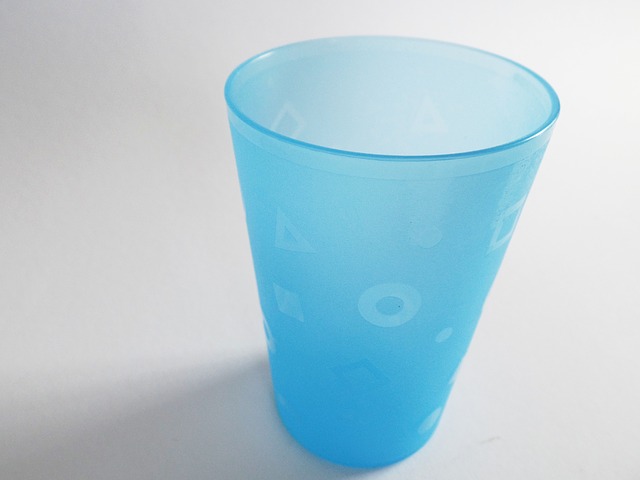
They aren't the only polymers though. Polymers can appear naturally or be synthetic, meaning that they are manufactured.
So what is a polymer?
A polymer is a long chain of molecules where the parts repeat. The small molecules that make up the polymer are called monomers.
The process of turning all those monomers into a polymer is called polymerization.
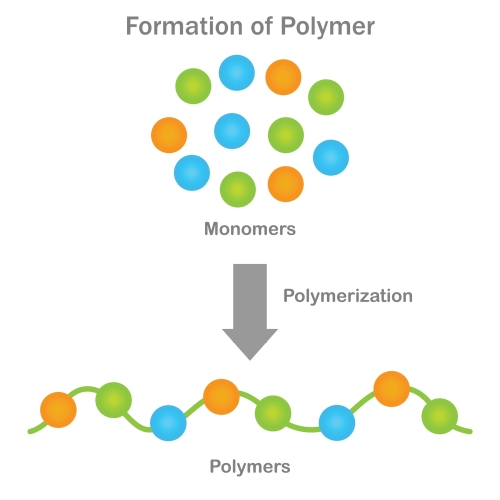
Even when polymers are made synthetically, we use chemical reactions to bond the monomers together. Different polymers will have different properties.
Polymers are really useful in our lives as they have so many different uses and properties, so let's check some out that you'll have come across.
Natural Polymers
There are all sorts of natural polymers found in plants, animals and other living things.
Starch:
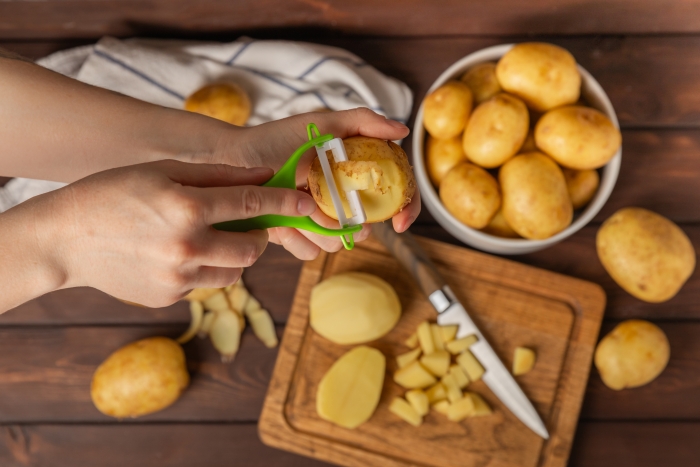
Yep, that's right. You've eaten polymers! Don't worry, it's safe. Starch is a polymer which is found in potatoes amongst other things. Starch is made of a long chain of glucose molecules. It helps plants to store energy.
Wool:
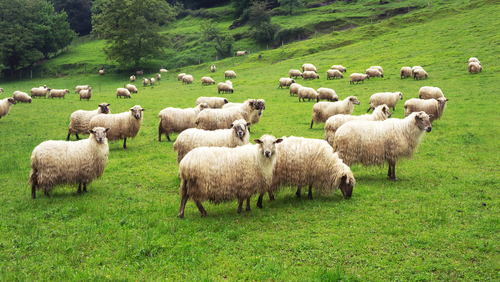
No, sheep aren't polymers. But their wool is. It's made of long strands where air gaps can trap heat energy, which is why wool is great for sweaters.
Chitin:
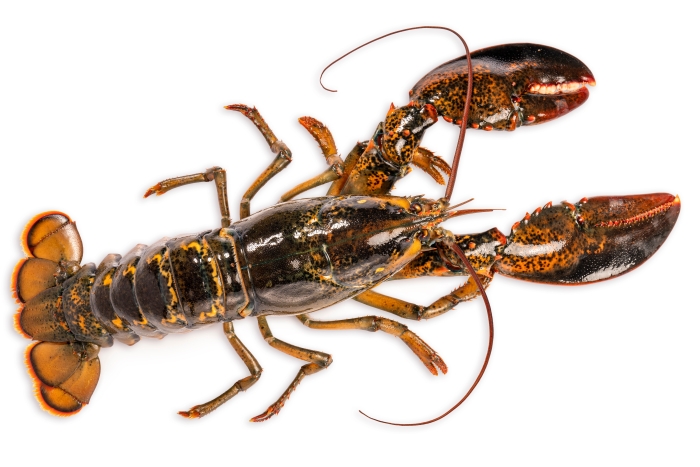
This is a polymer found in the exoskeletons of arthropods such as insects and crustaceans. It's like the hard shell bit that helps protect them. Chitin is a tough, protective natural polymer.
Rubber:

Think of all the things that are made of rubber - tyres, rubber gloves, balloons, the soles of your shoes! Rubber is a polymer too that we extract from trees. We use rubber so much, we even make our own synthetic rubber.
We could go on forever! A couple of other important polymers are DNA. The building blocks of our very existence. As well as keratin, which is part of what your nails and hair are made from. That's right, part of you is a polymer!
Synthetic Polymers
Probably the most common synthetic polymers are plastics. Synthetic means it's man-made. Ones you'll come across regularly without realising it are polythene. This is what plastic bags are usually made of. Nylon is also a synthetic polymer that we use to make clothes.
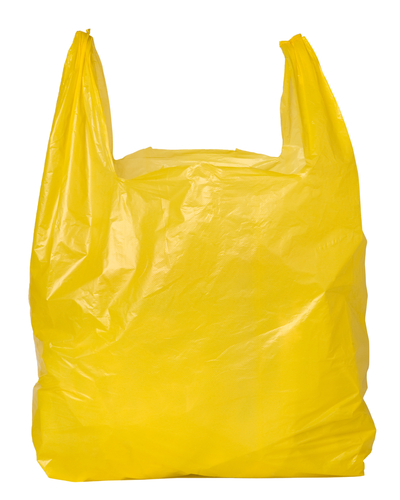
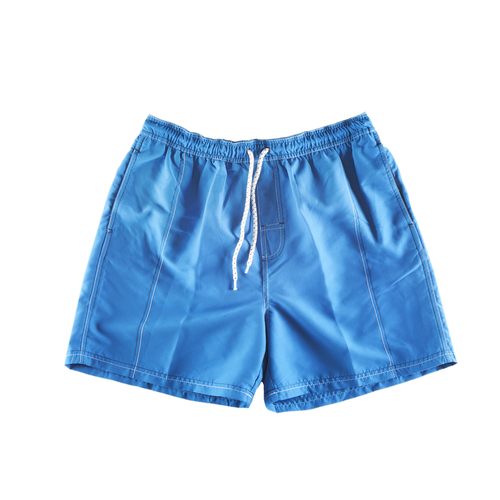
Properties of polymers
You're probably already thinking, plastics have a reputation for not being good for the environment. Plastics last a long time which is a property that can be beneficial but is harmful for the planet.
Most of the synthetic polymers also require a large amount of fossil fuels to produce them. This process is also harmful for the environment as it produces large amounts of greenhouse gases.
Other common properties of polymers include:
Being chemically unreactive
Strong
Electrical insulators
Can be moulded into different shapes
Are solid at room temperature
So as you can see, polymers are everywhere. They have some very helpful uses but we need to be careful as some polymers can be harmful.
Let's have a go at some questions so you can show us how much you know about polymers!

